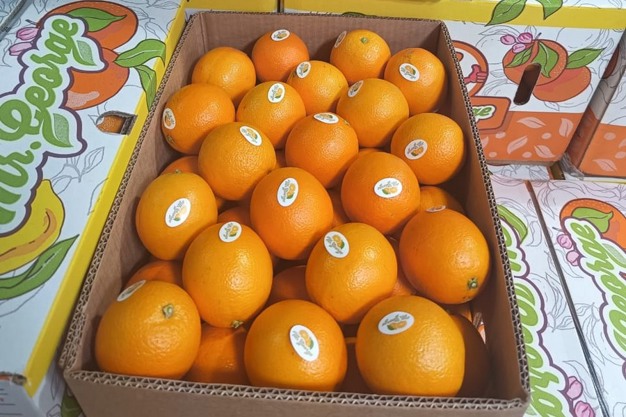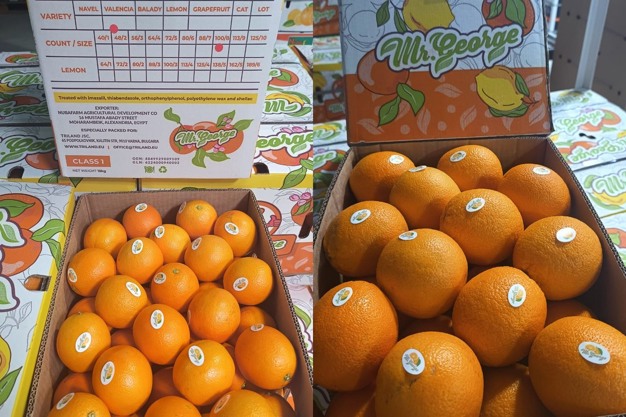Sourcing citrus fruits from Egypt and shipping them to Asia has been quite the challenge this year, says CEO Mariya Dermendzhieva of Bulgarian fresh produce trader Triland: "I would call this Egyptian citrus season 'the season of the long-term partnership and flexibility'. With bigger volumes of both Valencia and Honey Murcott, accompanied by predominantly medium and small sizes, combined with the complicated logistic solutions for the Asian markets and with the unstable Egyptian currency, we are in situation that requires devotion and honesty from each party in the supply chain."
During normal seasons, the majority of the citrus that Triland sources from Egypt would find its way to Asian markets, Dermendzhieva explains. "About 70% of our citrus are sold in South-East Asia and 30% to Central and Eastern Europe. This way we cover all the sizes and quality range that is available at our partner's farms and allows us to work with less pressure compared to companies that are focused only on Europe or Middle East as their markets. This allows us not to be part of the companies that support the so called 'flooding' of Europe with cheap Valencia oranges and Honey Murcott mandarins. Of course, we do not operate in a balloon and our clients receive plenty of alternative offers for supply, among which many have very attractive prices and terms."

"However, such new suppliers disappear just as fast as they show up, in cases of sudden price or demand increase or when they can sell with one cent more to someone else. In these situations, the fact that we have been a loyal supplier to all our clients and have served them not only with good fruit, but also with accurate information about crops, prices, competition and market expectations, is working in our favor. This leads to increased volume of our supply programs, although demand seems to be very similar to last year. We increased the percentage of fruit packed under our clients' own brands, which is another good sign."
Meanwhile it's quite hard for Egyptian growers to make solid deals and programs for their entire season. According to Dermendzhieva, the fluctuation currency value really messes with the profit of growers there: "Egyptian growers and traders are having extremely hard times due to the currency fluctuations. They set a deal on day one and at the time it seems profitable, but on the next day they wake up realizing the exchange rate changed significantly and the fruit that is being shipped on the water is already bringing losses. This is a huge pressure for the business and makes it difficult for the trading companies, who buy raw material from different farms or ready-packed fruit and export it, as with such changes they have no buffer to work with."

For Triland, the fact that they've worked with the same farm for a long time, gives the company security, while knowing what the people working there need, Dermendzhieva states. "We have sourced our Valencia oranges from the same farm for the last 11 years, grown by the same people, packed by the same workers and devoted to us and our needs. This allows us the flexibility to react to external factors as growers and not as traders, which helps us to maintain the quality of the fruit and of our services."
For one certain variety, the situation is a little bit more dire, as demand is down from both of the targeted markets, for different reasons: "The Honey Murcott situation is a bit different, as the demand seems to be much lower than normal in Europe, while the markets in Asia are not willing to absorb high price levels. These higher prices are caused due to the increased risk caused by the longer transit in regard to the Red Sea crisis. This overall lower demand makes the Mucrott prices drop dramatically and it's unclear what will happen over the course of the season. It looks more and more like a gamble to sell Honey Murcott this season. However, these challenges are a simple fact and we should look for possibilities and ways to overcome them. And we definitely have overcome them so far," Dermendzhieva concludes.
For more information:
Mariya Dermendzhieva
Triland JSC
Tel: +359898502797
Email: mariya@triland.eu
